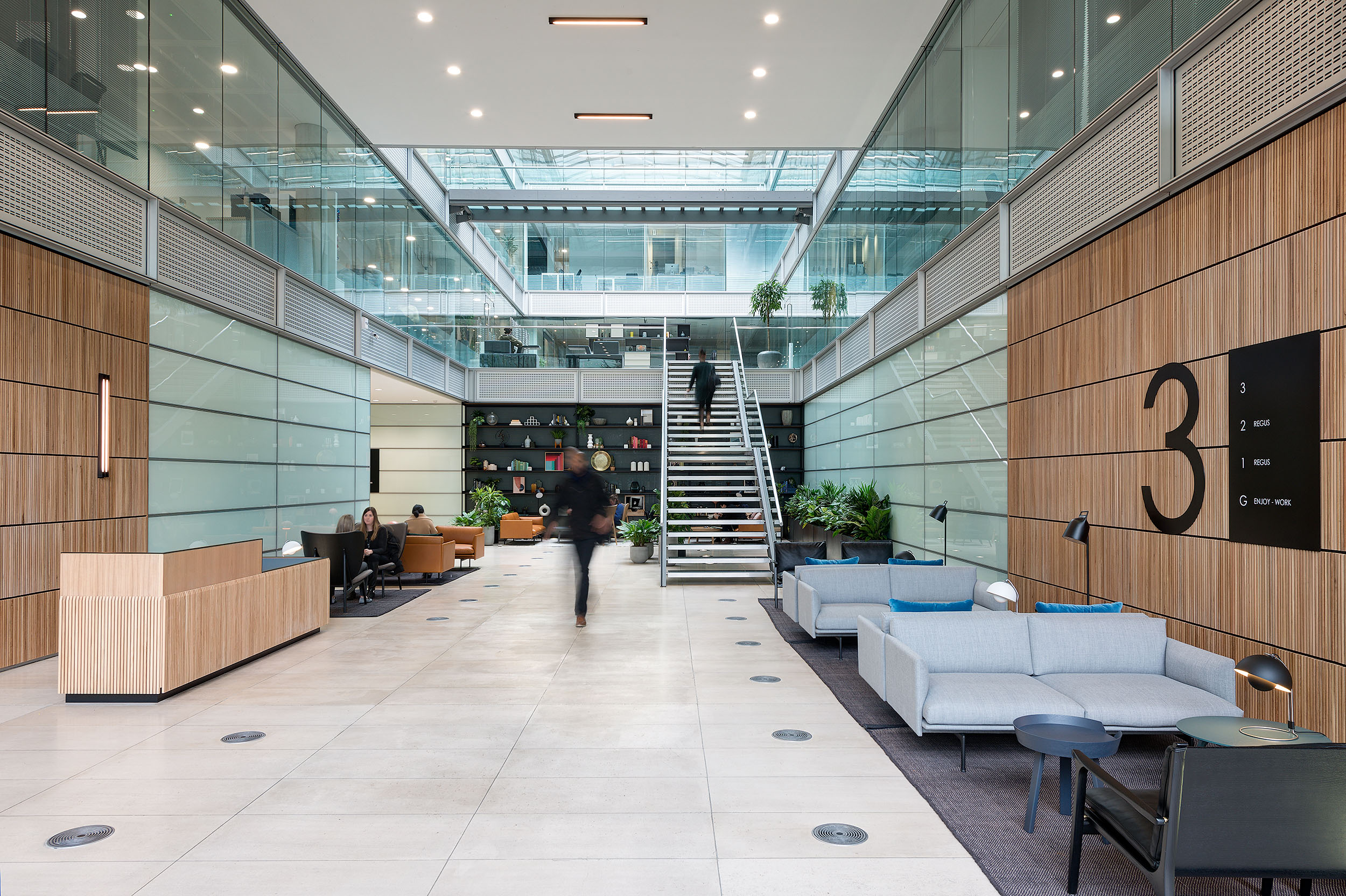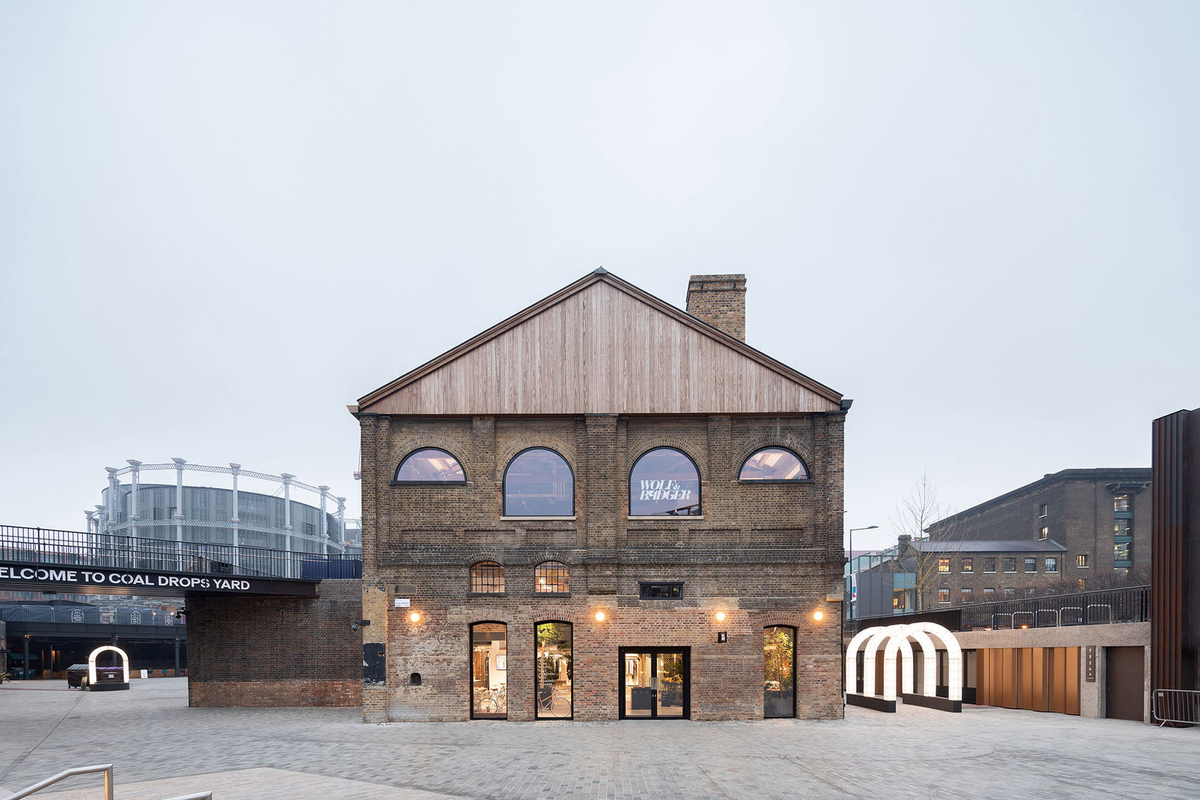ESG AT AMBIT

“To be complacent is to be complicit…We are in a position where we can make a positive impact on the planet and the communities in which we work”
Matt Robinson – Head of Sustainability
What is ESG?
ESG is an acronym that stands for Environment, Social and Governance. Created by financial markets, it is an investment analysis framework used to assess the environmental, social, and governance performance attributes of a business or real estate asset beyond its financial return.
The framework enables the analysis of various E, S, and G factors, providing a more consistent and measurable process for communicating the benefits beyond profits in simple language investors, customers, and capital markets can digest, benchmark against, and apply appropriate risk or opportunity value to in their decision-making process.
We use the following definitions to measure our performance:
-
Our environmental responsibility goes beyond compliance with regulations. We aim to minimise the carbon footprint of every project, from the design phase through construction and into the building’s operational life. This means we prioritise:
- Energy Efficiency: Incorporating energy-efficient systems such as LED lighting, smart HVAC systems, and renewable energy sources to reduce energy consumption.
- Sustainable Materials: Using responsibly sourced, recyclable, and non-toxic materials in our designs to lower the environmental impact of construction.
- Waste Management: Implementing zero-waste strategies by promoting recycling and reusing materials where possible.
- Biodiversity: Integrating green spaces and biophilic design principles to enhance biodiversity within the building environment.
-
The built environment has a profound impact on the health, wellbeing, and productivity of its occupants. Our social initiatives focus on creating office spaces that prioritise:
- Health and Wellbeing: Designing workspaces that promote mental and physical health through features like natural light, air quality control, ergonomic furniture, and access to outdoor spaces.
- Inclusive Design: Ensuring spaces are accessible and welcoming to everyone, including those with disabilities or special needs, through thoughtful layout, adaptive technology, and user-centred design.
- Community Engagement: Promoting positive social outcomes by creating spaces that spark collaboration, innovation, and a sense of community within the workplace.
- Diversity and Inclusion: Incorporating diversity and inclusion principles into every project, including consulting with stakeholders to ensure diverse perspectives are represented in our designs.
-
Strong governance ensures that our environmental and social responsibilities are met with integrity and transparency. We are committed to:
- Ethical Business Practices: Upholding the highest standards of transparency, accountability, and ethics in all of our operations, from supply chain management to client relations.
- Compliance and Certifications: Adhering to and surpassing industry standards, such as BREEAM, LEED, and WELL Building certifications, to ensure best practices are consistently implemented.
- Stakeholder Collaboration: Engaging with all stakeholders, including clients, employees, suppliers, and communities, engaging in partnerships that support sustainable and responsible business practices.
- Risk Management: Proactively identifying and mitigating risks associated with environmental, social, and governance factors to ensure the long-term success and resilience of our projects and business.
Why is ESG important?
Reducing greenhouse gas (GHG) emissions and improving public health are critical challenges, with the property sector playing a key role. Real estate contributes 39% of global CO₂ emissions and heavily impacts the quality of life for people who spend most of their time indoors.
For both property owners and occupiers, real estate choices directly affect people and the planet. ESG performance, now a measurable and crucial factor for investors and stakeholders, has become essential for any business’s resilience, value, and trustworthiness, making ESG a must-have for long-term success in the UK.
ESG Real Estate Drivers
Historically, ESG performance was seen as an optional nice to have, however it has transitioned rapidly into a central requirement. Typically, businesses and real estate assets which demonstrate better ESG performance credentials are perceived as lower risk, future resilient, more desirable and therefore achieve higher rental and sales values.
2%
The interest rate discount available on ESG-linked development and investment finance funding lines for ESG-positive assets.
34%
Globally, 34% of occupiers already have green lease clauses.
2027
The minimum energy efficiency standard (MEES) regulation proposes all commercial properties to have an EPC rating of ‘C’ by 2027.
500
From April 2022, it became mandatory for UK companies with over 500 employees and £500million in turnover to report their climate-related risks through the Task Force on Climate-related Financial Disclosures (TCFD).
2030
By order of the London Mayor, all new commercial developments in London must be carbon neutral by 2030.
For providers and occupiers alike, ESG is more than a trend. It’s a defining factor in securing a competitive edge.
What does ESG mean for providers?
The design, fit-out and operational decisions we help providers make have a direct and indirect impact on people and the planet. These attributes are now measurable and becoming highly important for investors, funders and occupants, which presents both an opportunity and risk for clients to achieve and maintain competitive advantage.

What does ESG mean for occupiers?
The design, fit-out and operational decisions we help occupiers make have a direct and indirect impact on people and the planet. Regardless of the clients business speciality, the ESG attributes of the office they occupy is an integral part of their overall ESG performance and reporting as a business. As 80% of companies globally now report sustainability performance, the office is both an opportunity and risk for occupiers to create a competitive advantage with the physical spaces they control.















